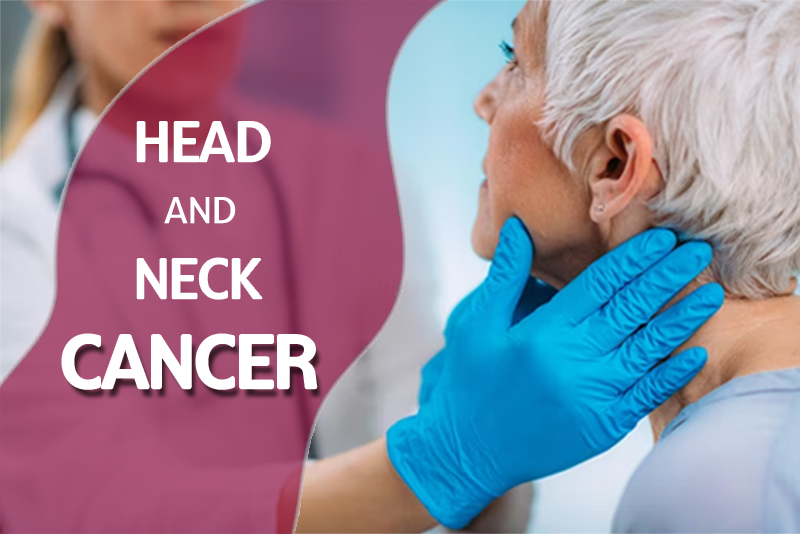

Head and neck cancer is a a collection of cancers that develop in the mouth, throat, nose, sinuses, or salivary glands . Because these cancers have similar symptoms and are treated similarly, they are sometimes classified together. Effective management, control, and teamwork from healthcare organizations, professionals, and communities are necessary in the fight against this disease.
The significance of early detection and identification of symptoms
For head and neck cancer to be successfully treated and to have better results, early detection is essential. Early symptom recognition can help with timely diagnosis and treatment.
For head and neck cancer to be successfully treated and to have better results, early detection is essential. Early symptom recognition can help with timely diagnosis and treatment. Head and neck cancer symptoms might vary depending on the location of the disease, but they may include:
vPersistent sore throat
vHaving trouble swallowing
vPersistent hoarseness or voice changes
vA lump or pain that fails to go away
vContinuous ear ache
vLump or swelling in the neck
vUnexpected weight reduction
Treatment options and personalised care
Every treatment option has a unique function in the management of the disease. Tumors are frequently removed surgically, and cancer cells are killed by radiation therapy and chemotherapy. More recent methods, including as targeted therapy and immunotherapy, enable the immune system identify and eliminate cancer cells by focusing on particular chemicals involved in the growth of cancer cells. Whether administered single or in combination, these therapies seek to completely cure the cancer while reducing side effects and maintaining vital organs. Better results and more effective therapy are possible when early detection is achieved. Personalized treatment plans that are adapted to the unique circumstances of each patient can significantly increase their chances of recovery.
In order to reduce the risk of head and neck cancer, prevention is important. One of the main risk factors for head and neck cancers is tobacco use, which includes both smoking and smokeless tobacco. Excessive use in drinking alcohol is another important risk factor. In addition, there is evidence that certain head and neck cancers, especially oropharyngeal cancers, are associated with high-risk HPV infection, including HPV-16.
Since people can take steps to lower their risk, such as giving up smoking, consuming less alcohol, and receiving an HPV vaccination, these risk factors are regarded as changeable.
Some oral disorders can increase the risk of head and neck cancer, routine dental checkups are helpful in the early detection of oral health issues. By preserving vocal health and lowering the strain on the vocal cords, voice hygiene activities may help minimize the incidence of laryngeal cancer.
Making good dietary choices and controlling reflux can help reduce irritation and inflammation in the throat and esophagus, which may minimize the chance of getting cancer in those areas. It's crucial to take precautions against the sun to avoid developing skin cancer, especially on the head and neck.